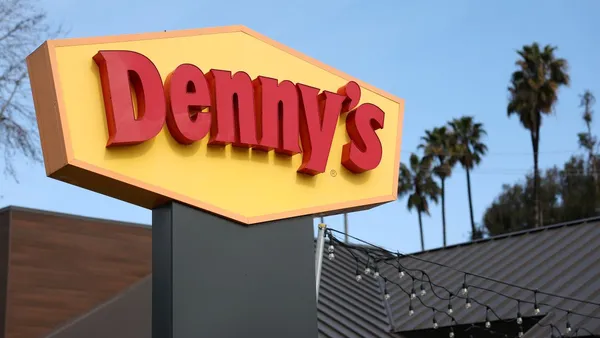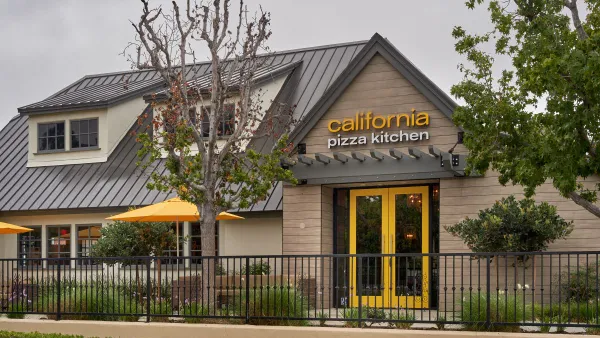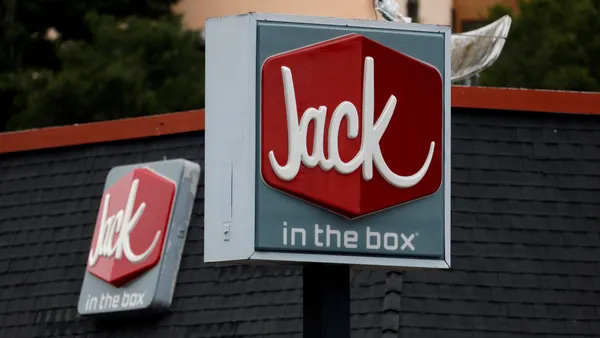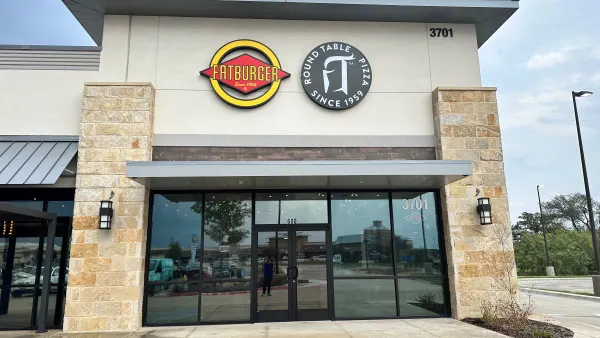Dive Brief:
- Dunkin’ Brands is in preliminary discussions to be acquired by Inspire Brands, the company confirmed in a statement on Sunday. The company said there is no certainty that an agreement will be reached and would only provide further comments once a deal is settled or discussions are terminated.
- As part of the potential deal, which could be officially announced as early as Monday, Dunkin' would go private for $106.5 per share, according to The New York Times, which cited two people with knowledge of the negotiations. This share price, which is 20% higher than the company’s Friday closing price, values the company at about $8.8 billion.
- A transaction of this magnitude would be the largest among two restaurant holding companies so far this year, and suggests that healthy acquisitions aren’t entirely off the table during the pandemic.
Dive Insight:
Inspire Brands has been particularly hungry for large acquisitions, most recently acquiring Jimmy John’s in September 2019. It acquired Sonic in December 2018. If early terms of the deal with Dunkin’ stand, it would be far more expensive than what Inspire has paid for other public companies, according to Andrew Charles, Director, Consumer, Restaurants at Cowen. The deal is 15 times Sonic’s 2019 estimated enterprise value/earnings before interest, taxes, depreciation and amortization and 10 times Buffalo Wild Wing’s estimated 2018 EV/EBIDTA.
Even at a higher cost, the deal would round out Roark-backed Inspire Brands’ portfolio, which includes Arby’s, Buffalo Wild Wings, Sonic and Jimmy John’s with a coffee/doughnut brand and ice cream/dessert brand.
While Dunkin’ has taken a few hits during the pandemic — its revenue was down 20% during Q2 2020 — investors remain bullish on its future, especially since Dunkin’ quickly pivoted to drive-thru, carryout and delivery-only services.
"Dunkin’s model is also very pandemic-friendly because it has drive-thrus, and its products are easily delivered without deterioration in quality," analyst Josh Arnold writes on Seeking Alpha. "However the winter goes, I think Dunkin’ will continue to be a winner."
The company has been focused on improving profitability with plans to close 800 stores by the end of the year, about 450 of which are at Speedway conveniences stores. These stores have low average weekly sales and can’t support beverage innovation or next generation remodels, CEO Dave Hoffmann in an earnings call earlier this year. The company has also been adding new items to its menu, such as its Beyond Meat Breakfast Sandwich, which contributed to a 2.8% increase in same-stores sales during Q4 2019. The company dropped Donuts from its name in 2019 to emphasize that it doesn't just sell doughnuts anymore, with beverages making up more than half of its revenue, according to The New York Times. It also is doubling down on its digital platform and hired its first chief digital and strategy officer in August.
Dunkin’ went public in 2011, six years after a group of private equity firms led by Bain Capital, Carlyle Group and Thomas H. Lee Partners bought the company from Pernod Ricard for $2.4 billion, according to The New York Times.











